The Philadelphia Flyers once broke one of hockey’s unwritten rules, and almost landed a future NHL star in the process. In 2006, the Flyers signed Ryan Kesler to an offer sheet. At the time, the 22-year-old Kesler was coming off his first full NHL season and was one of the Vancouver Canucks’ prized prospects. As the Canucks were dangerously close to the $44 million salary cap, the Flyers and General Manager Bobby Clarke saw an opportunity to swoop in on Kesler.
Though he surely caused friction with Vancouver and perhaps upset other teams in the league, Clarke had no qualms about the move.
“We all have the same cap. We all operate in the same world. They had all summer to sign this guy. It was three days before training camp, he’s not signed, we’re going to lose [Keith] Primeau [to retirement], so we took a shot at getting another centre. If you’re unhappy with the rules, complain to Gary Bettman. I didn’t put the rule in.”
Clarke on the Kesler offer sheet
Unfortunately for Clarke and the Flyers, his bold move failed and Vancouver matched the offer shortly after.
The Elusive and Infamous Offer Sheet
If Vancouver was caught off-guard by the offer sheet, they had good reason. After all, it was the first offer sheet signed in over eight years. Generally, signing players to offer sheets is an easy way to get on rival GMs’ nerves. Though perfectly legal, they are often seen as attempts to steal key players or to put opposing teams in dire financial situations.
Related: The First Jeff Carter Trade Revisited
Kesler’s offer sheet was only for one year and $1.9 million, but it put the Canucks in a difficult position. They had little wiggle room with the salary cap, and did not want to spend that much on the unproven prospect. Nonetheless, they were forced to come up with that money to hold on to Kesler.
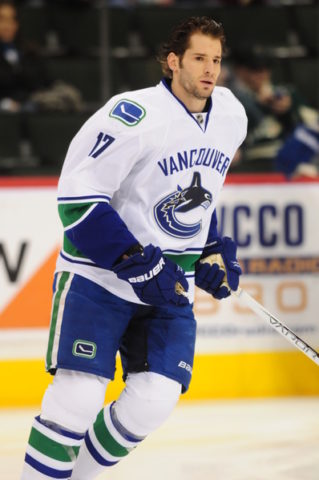
Had the Canucks not matched the offer sheet, they would have received a second-round draft pick from the Flyers. That actually would have been a good deal for the Flyers. Compensation for unmatched offer sheets varies, but usually the offer team has to part with significant assets. A prominent example was the St. Louis Blues signing Scott Stevens to an offer sheet in 1990.
As the Washington Capitals failed to match the offer sheet, they received five first-round draft picks. The following year, ironically Stevens became the compensation when the Blues signed New Jersey Devil Brendan Shanahan to an offer sheet.
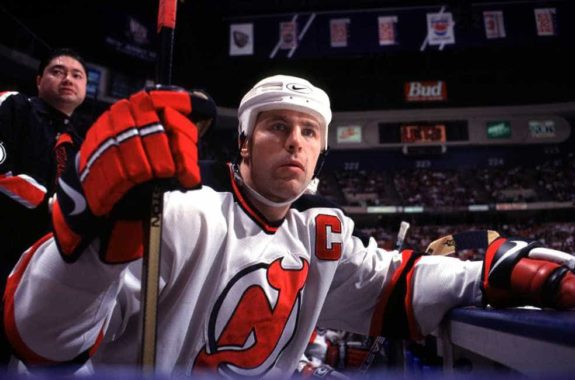
Therefore, in order to stay on good terms with opposing GMs and to maintain key assets, teams rarely sign players to offer sheets. In the past two decades, there were only nine such occurrences, eight of which were matched.
An Impressive Career for Kesler
After failing to steal Kesler, the Flyers put up one of their worst seasons in franchise history. With just 56 points, the 2006-07 Flyers finished with the worst record in the entire league for the first time in franchise history. They also missed the playoffs for the first time since 1994.
Related: Best NHL Player From Each U.S. State
As for Kesler, he recorded 16 points in his first 48 games before suffering an injury that forced him to miss the rest of the regular season. He came back the next season and began to break out with his first 20-plus goal campaign. After that, he continued his rise with consecutive 59, 75 and 73-point seasons from 2008-09 to 2010-11. The 2010-11 season could have been the best of his career. Not only did he earn his first of two NHL All-Star Game appearances with a career-high 41 goals, but he also won the Selke Trophy thanks to his defensive efforts.
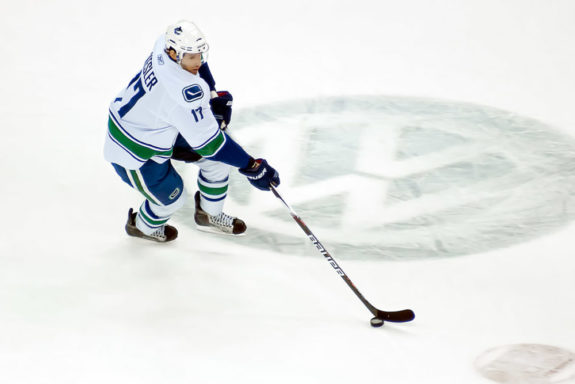
He has had five 20-plus goal seasons since then, two with Vancouver and three with the Anaheim Ducks whom he was traded to in 2014. Now 35 and on Long Term Injured Reserve, Kesler’s impressive career may soon be coming to an end. As such, it seems timely to reflect on what could have been had his offer sheet gone unmatched.
What Kesler Could Have Meant for Philly
Throughout Kesler’s rise to stardom, the Flyers were one of the strongest teams in the NHL. From 2007-08 to 2011-12, the Flyers recorded five consecutive playoff appearances. They even made it to the Stanley Cup Final in 2010 before losing to the Chicago Blackhawks in six games.
What was interesting about that almost championship 2009-10 season is that the Flyers lacked a bonafide offensive superstar. Sure they had key players, like Mike Richards, Jeff Carter, Danny Briere and a budding Claude Giroux, but their top two leaders in assists were defensemen (Chris Pronger and Kimmo Timonen). Furthermore, with a far from elite 62 points, Richards was the team points leader.
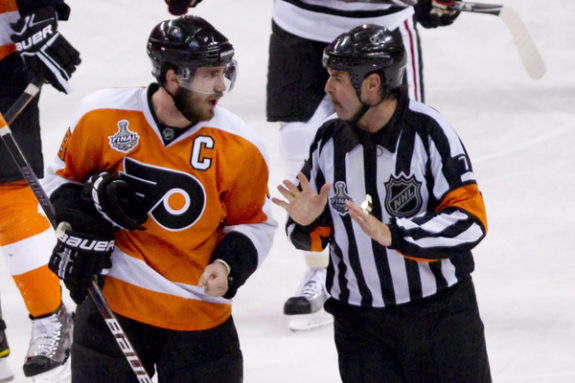
It seems like the Flyers were missing a final piece on offense to help them win the Cup. Could Kesler have been that piece? It’s hard to speculate, but he did notch 75 points that season. Interestingly enough, those 75 points were only third-most on the Canucks, behind both of the Sedin twins.
The next season, the Flyers were eliminated in the Eastern Conference Semifinal by the Boston Bruins. By then, Giroux had evolved into a star and probably the Flyers’ best player with a team-high 76 points. Meanwhile, Kesler recorded 73 points that season, but his 41 goals were more than any Flyer. Again, could Kesler have been the final piece needed for the Flyers to end their 35-year Stanley Cup drought?
Related: Every Stanley Cup Since 1960
The easy rebuttal is that Kesler failed to win a Stanley Cup with Vancouver or Anaheim. During the same years the Flyers were dominating the Eastern Conference, Vancouver was very strong in the Western Conference. They, too, put together five consecutive playoff appearances from 2008-09 to 2012-13. Furthermore, they also advanced to a Stanley Cup Final in 2011 before losing to the Boston Bruins. What’s important to remember though is that throughout his career, Kesler has been shielded from the spotlight (by the Sedins in Vancouver and by Ryan Getzlaf and Corey Perry in Anaheim). As such, Kesler has never led his team in points.
It would have been a different story in Philadelphia. In 2009-10 and 2010-11, assuming he produced similar stats in Philly, Kesler would have been the Flyers’ best player. As the top player, he would have had a different role in the offense in Philadelphia as he had in Vancouver. Besides obviously scoring goals, Kesler would have also consumed the attention of opposing defensemen, allowing Richards, Giroux and Co. to shine even further. That just might have been what the Flyers needed.
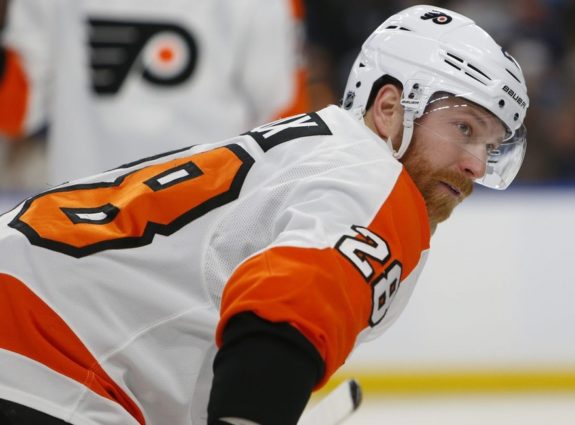
Regardless, we’ll never know what could have been had Kesler played in Philly. What we do know is that Kesler ushered in the closest we will ever have again to a “golden age” for offer sheets. Over the next six years, a total of six players signed offer sheets, a remarkable rate given their historical infrequency. The last of those six was Philadelphia signing defenseman Shea Weber to a mind-blowing 14 year, $110 million offer sheet in 2012, which Nashville matched. As the saying goes, “if at first you don’t succeed…”